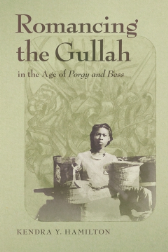Dr. Charles Kimball Speaks on Hot Topics
September 17, 2011
Dr. Charles Kimball, Presidential Professor and Director of Religious Studies at the University of Oklahoma, spoke to PC students on “When Religion Becomes Lethal: Finding Hope for the Perilous Journey Ahead” at a CEP event Tuesday night in Edmunds . The event kicked off the campus wide Interfaith Dialogue portion of the President’s Interfaith and Community Service Campus Challenge initiative by President Obama.
Kimball is an expert in the Middle East and discussed issues surrounding Islam, Judaism, and Christianity and their relationship with politics. His three main points were that religion is a powerful force for both good and bad, weapons of mass destruction are an imminent issue, and it doesn’t take many people to wreak havoc on a large scale.
Kimball discussed governing through the different religions. Religion and politics are always linked, but none of the religions provide a model for how to “correctly” govern. Kimball discussed the ideal ways to govern in the different religions. In Judaism the ideal way of governing would be through a monarchy. In Christianity the ideal way of governing is by monarchy. This is found in the letters of Paul where he teaches to pray for those with authority over you. In Islam the ideal form of government would be a very comprehensive way of life where nothing would be separated (church and state, etc.).
This arises the question, could Islam provide the basis for a government? Kimball thinks it could, but since there are so many different ways in which it could be set up, he suggests that many primarily Islamic states are still in their “experimental” stages with figuring it out.
Kimball says that there is hope. He encourages fighting misinformation and ignorance through education, especially about what Islam teaches. Engaging in intentional dialogue doesn’t mean that you have to agree with someone theologically, but engaging in interfaith conversation brings light to an issue at hand. Another avenue for hope is looking for ways to cooperate together in areas in common concern. Be intentional about putting yourself in interfaith situations doing things that you would already be doing, such as service projects, together.




